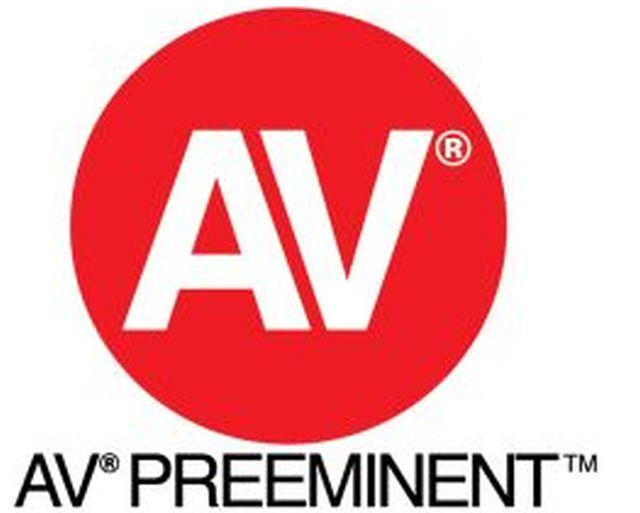On December 21, 2010, the First District Court of Appeals in Florida ruled against Nationwide Insurance in it’s attempt to circumvent the rule of evidence that prohibits defendants from introducing any evidence of health insurance benefits paid on behalf of the injured party. In Nationwide vs. Harrell, 35 Florida Law Weekly D 2873, the court ruled that the collateral source rule prohibits the introduction of any evidence of payments of collateral sources (i.e. health or disability insurance payments) citing to the long history of precedent. The only exception to this rule would be for governmental benefits such as Medicare or Medicaid, in which case a defendant can inform the jury of the benefits. The rationale behind preventing a jury from knowing about health insurance benefits, versus allowing a jury to hear about governmental benefits, is that where benefits are earned by a person who pays from them out of their own pocket or as monies deducted from their paycheck, he or she should not be penalized in court for taken responsibility for their medical care. Whereas, all people may obtain Medicare or Medicaid as a matter of right or entitlement without earning it. This rule perhaps bears some resemblance to the rule that prevents a plaintiff from informing the jury that the defendant has liability insurance that will pay the judgment.
The collateral source rule is not only a rule of evidence, as described above, but is also a rule of damages, in that it permits an injured party to recover full compensatory damages from a tortfeasor (at fault party) irrespective of the payment of any element of those damages by a source independent of the tortfeasor.
The Florida Legislature has since modified this common law rule of damages to require that judges reduce the amount awarded in past medical or lost wages by the amount that any health or disability insurance company has a right of reimbursement on. In other words, if a person has sustained $100,000 in medical expenses, but under his contract with his health insurance company, only $50,000 was actually paid by the insurer and the other $50,000 was written off under the terms of the health insurance contact (so that the doctor or hospital can not “balance bill” the patient for the remainder) the injured person can not keep the additional $50,000 awarded by the jury. This prevents a double recovery. In practical terms, a jury should be able to see the full amount of the medical expenses as it also serves as evidence of the amount of damages a person has sustained. The amount that the health or disability insurer has a right of reimbursement on does not get reduced by the judge. The court then sets off the amount the person paid in obtaining the health insurance benefits, for example the amount paid in premiums to keep the insurance in force, and then would enter final judgment accordingly. Injured plaintiffs must then reimburse health insurance and disability insurers for the amount that was apportioned in the final judgment as set fort forth in the statute below:
768.76 Collateral sources of indemnity.—
(1)In any action to which this part applies in which liability is admitted or is determined by the trier of fact and in which damages are awarded to compensate the claimant for losses sustained, the court shall reduce the amount of such award by the total of all amounts which have been paid for the benefit of the claimant, or which are otherwise available to the claimant, from all collateral sources; however, there shall be no reduction for collateral sources for which a subrogation or reimbursement right exists. Such reduction shall be offset to the extent of any amount which has been paid, contributed, or forfeited by, or on behalf of, the claimant or members of the claimant’s immediate family to secure her or his right to any collateral source benefit which the claimant is receiving as a result of her or his injury.
(2)For purposes of this section:
(a)“Collateral sources” means any payments made to the claimant, or made on the claimant’s behalf, by or pursuant to:
1.The United States Social Security Act, except Title XVIII and Title XIX; any federal, state, or local income disability act; or any other public programs providing medical expenses, disability payments, or other similar benefits, except those prohibited by federal law and those expressly excluded by law as collateral sources.
2.Any health, sickness, or income disability insurance; automobile accident insurance that provides health benefits or income disability coverage; and any other similar insurance benefits, except life insurance benefits available to the claimant, whether purchased by her or him or provided by others.
3.Any contract or agreement of any group, organization, partnership, or corporation to provide, pay for, or reimburse the costs of hospital, medical, dental, or other health care services.4.Any contractual or voluntary wage continuation plan provided by employers or by any other system intended to provide wages during a period of disability.
(b)Notwithstanding any other provision of this section, benefits received under Medicare, or any other federal program providing for a Federal Government lien on or right of reimbursement from the plaintiff’s recovery, the Workers’ Compensation Law, the Medicaid program of Title XIX of the Social Security Act or from any medical services program administered by the Department of Health shall not be considered a collateral source.
(3)In the event that the fees for legal services provided to the claimant are based on a percentage of the amount of money awarded to the claimant, such percentage shall be based on the net amount of the award as reduced by the amounts of collateral sources and as increased by insurance premiums paid.
(4)A provider of collateral sources that has a right of subrogation or reimbursement that has complied with this section shall have a right of reimbursement from a claimant to whom it has provided collateral sources if such claimant has recovered all or part of such collateral sources from a tortfeasor. Such provider’s right of reimbursement shall be limited to the actual amount of collateral sources recovered by the claimant from a tortfeasor, minus its pro rata share of costs and attorney’s fees incurred by the claimant in recovering such collateral sources from the tortfeasor. In determining the provider’s pro rata share of those costs and attorney’s fees, the provider shall have deducted from its recovery a percentage amount equal to the percentage of the judgment or settlement which is for costs and attorney’s fees.
(5)Any disputes between the claimant and the provider as to the actual amount of collateral sources recovered by the claimant from a tortfeasor shall be subject to determination by a court of competent jurisdiction. In determining the actual amount of collateral sources recovered, the court shall give consideration to any offset in the amount of settlement or judgment for any comparative negligence of the claimant, limitations in the amount of liability insurance coverage available to the tortfeasor, or any other mitigating factors which the court deems equitable and appropriate under the circumstances.
(6)A claimant shall send the provider of any collateral sources, by certified or registered mail, notification of claimant’s intent to claim damages from the tortfeasor. If the claimant has filed suit against the tortfeasor at the time such notice is sent, a copy of the complaint against the tortfeasor should be sent along with such notice. Such notice must include a statement that the provider of collateral sources will waive any right to subrogation or reimbursement unless it provides the claimant or claimant’s attorney a statement asserting payment of benefits and right of subrogation or reimbursement within 30 days following receipt of the claimant’s notification to the collateral sources provider.
(7)Within 30 days after receipt of the claimant’s notification of intent to claim damages from the tortfeasor, the provider of collateral sources must provide the claimant or claimant’s attorney a statement asserting its payment of collateral sources benefits and right of subrogation or reimbursement. Failure of the provider of collateral sources to provide such statement to the claimant or claimant’s attorney within the 30-day period shall result in waiver of any claim to subrogation or reimbursement by the provider with respect to any such collateral sources. No right of subrogation or reimbursement shall exist for a provider of collateral sources that has waived its right of subrogation or reimbursement pursuant to this subsection.
(8)Reimbursement of a collateral sources provider pursuant to this section shall satisfy such collateral sources provider’s right of subrogation or reimbursement. The provider shall have no right of subrogation or reimbursement for collateral sources payments made after the date of waiver, settlement, or judgment.
(9)A collateral source provider claiming a right of subrogation or reimbursement under this section shall cooperate with the claimant by producing such information as is reasonably necessary for the claimant to prove the nature and extent of the value of the collateral sources provided. The failure of the collateral source provider to cooperate may be taken into account by the court in determining the right to or the amount of the reimbursement asserted.




